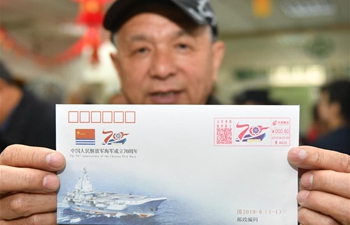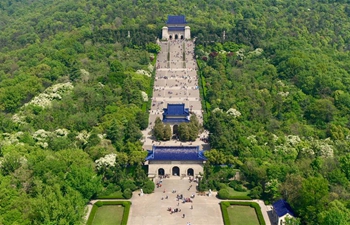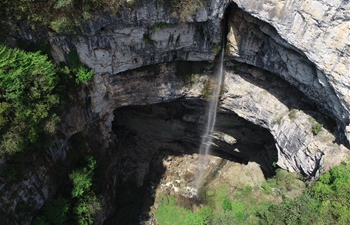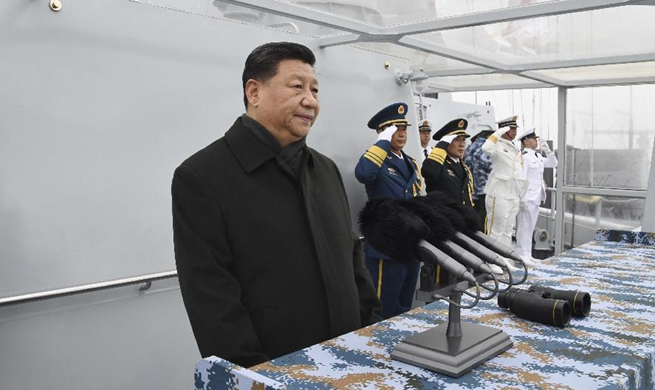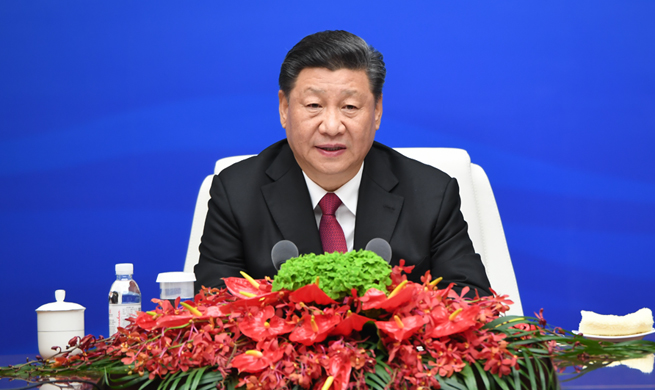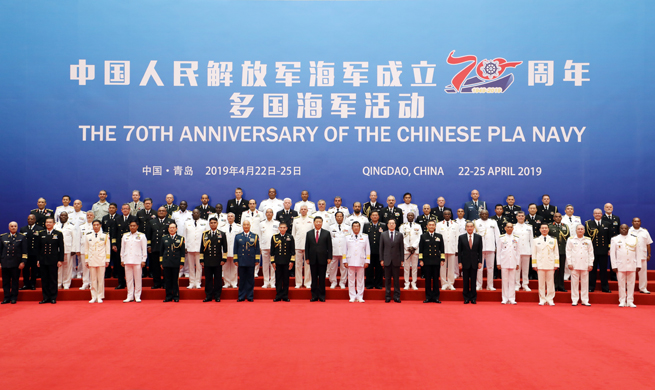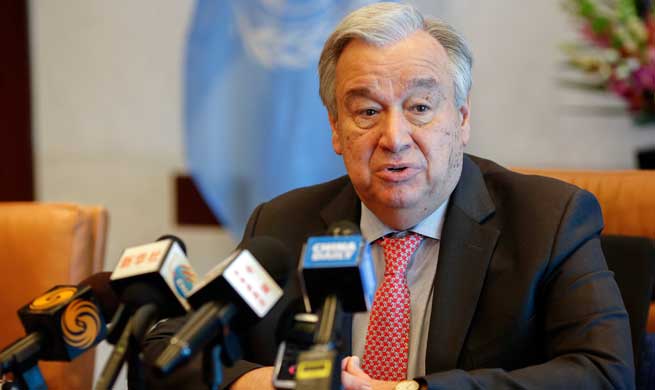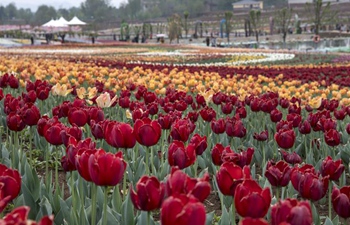BEIJING, April 24 (Xinhua) -- Science facilities on China's planned Tiangong space station could support hundreds of space research projects after it's completed in 2022.
Sixteen experiment racks will be installed in the core module and two lab capsules of the space station, and an extravehicular experiment platform will be built.
Each rack is regarded as a lab that can support various space experiments, and astronauts can upgrade and replace the facilities.
In addition, a capsule holding a large optical telescope will fly in the same orbit as the station, according to the Technology and Engineering Center for Space Utilization (CSU) of the Chinese Academy of Sciences.
The facilities will support a large number of research projects in fields such as astronomy, space life science, biotechnology, microgravity basic physics and space materials science.
The CSU has made breakthroughs in key technologies and a test version of the experiment racks in the core module is almost finished, said Wang Ke, director of the CSU Integration Technology Center.
At about 1.8 meters high, 1 meter wide and 900 cm deep, each rack weighs less than 500 kg.
Although the racks are smaller with about half the weight of the racks on the International Space Station (ISS), they could have similar and even better performance. "We believe more important scientific results can be achieved on China's space station," said Wang.
The space station will carry a hydrogen clock, a cold atomic clock and an optical clock to establish a high-precision time and frequency system.
"The margin of error is less than 1 second every 3 billion years," said Zhang Wei, director of the Utilization Development Center of CSU.
The time and frequency system, as well as an ultra-low temperature cold atomic experiment system, will support research in general relativity, gravitational physics and quantum physics, said Zhang.
China is seeking international collaboration in experiments on the station to promote sustainable global development and cooperation.
Almost 100 international cooperation proposals have been received, and about 30 have passed the initial evaluation, said Zhang.





